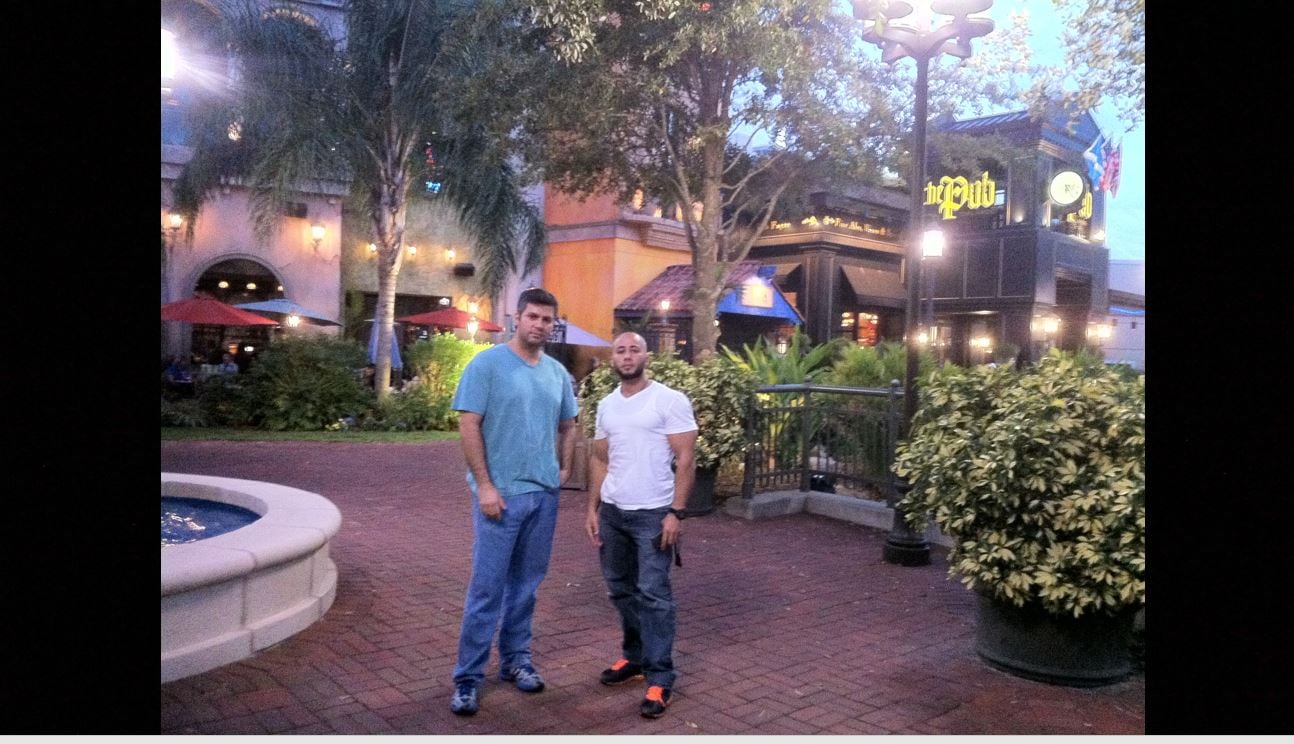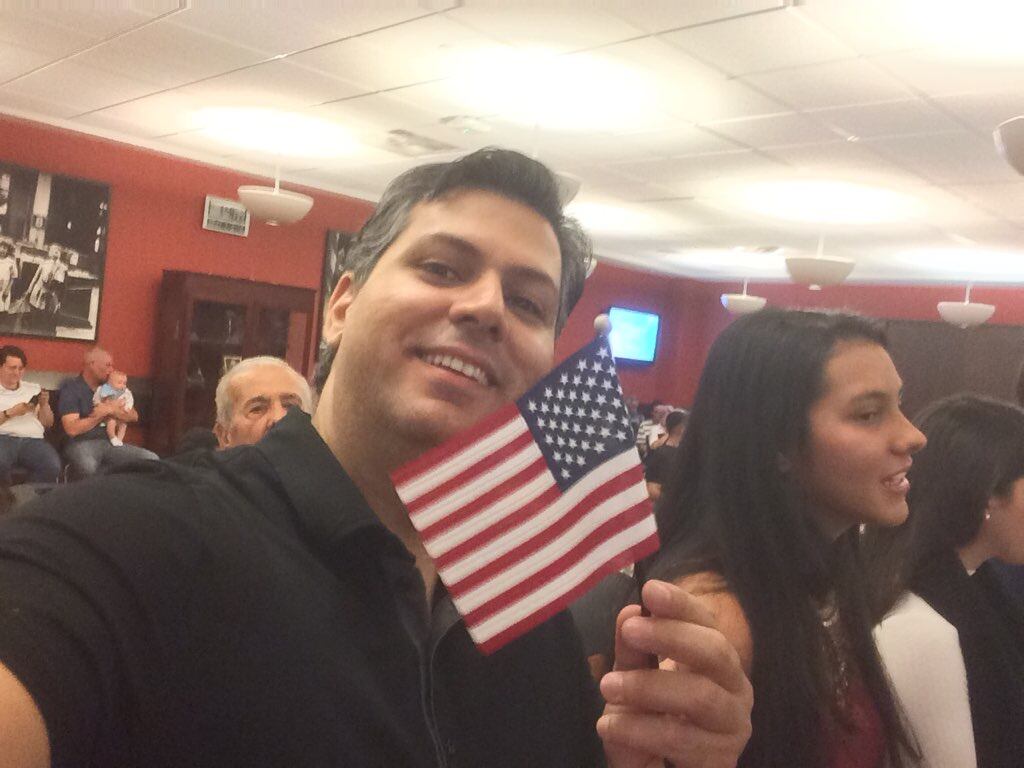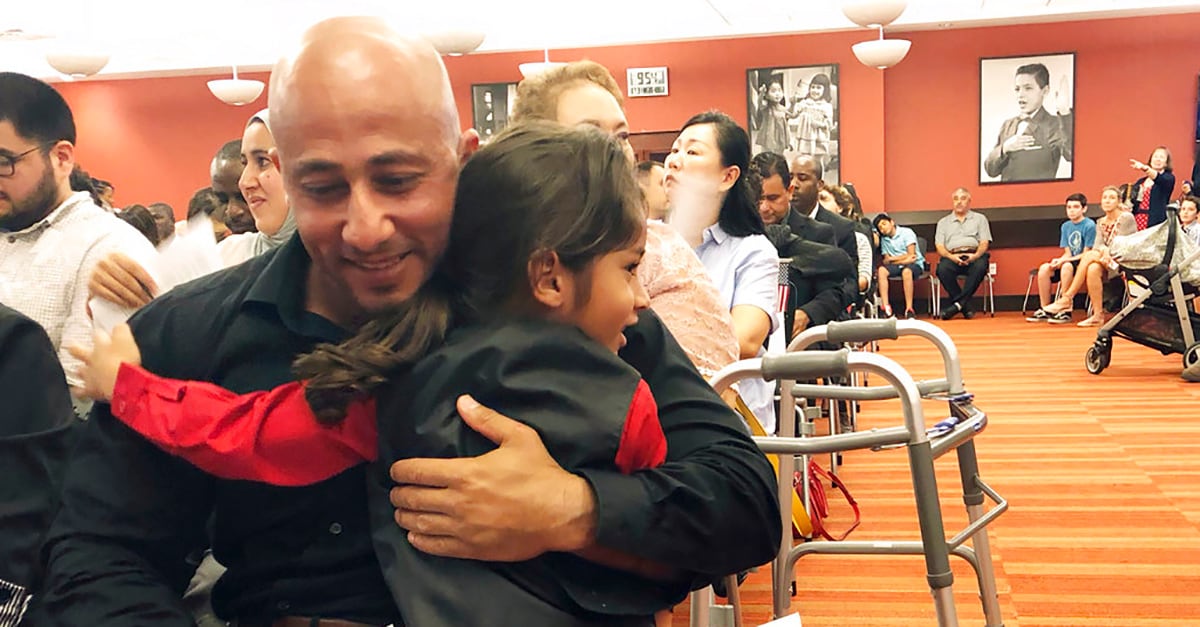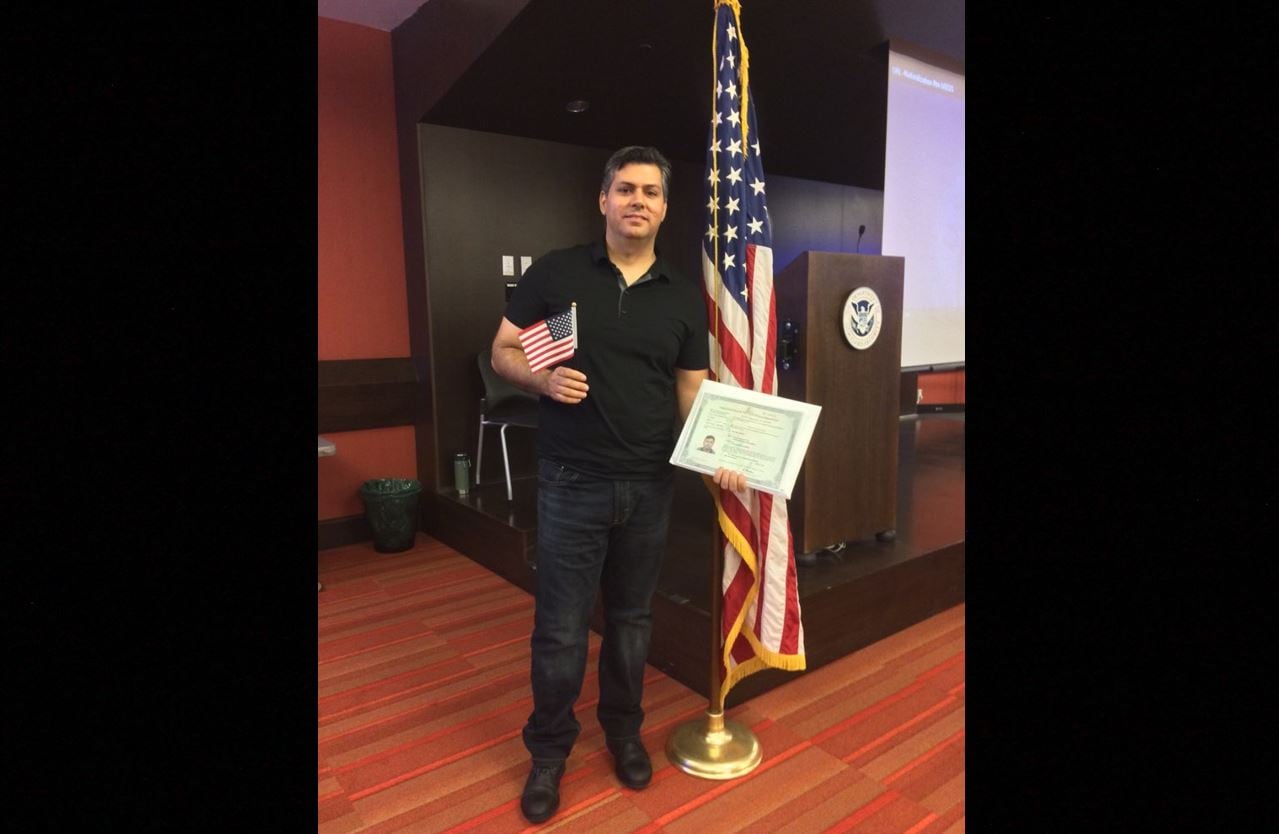A former Iraqi interpreter for U.S. forces became an American citizen Tuesday after previously being pulled from a citizenship ceremony by immigration officials for unspecified reasons — a problem he said other interpreters have experienced.
Dhurgham Abdulkareem, 41, said that becoming a citizen has finally given him “peace of mind." He now knows he won’t be forced to return to Iraq, where could face retribution for having worked for the Americans.
His citizenship request was approved after Military Times contacted immigration officials last week.
Now that he has his citizenship, Abdulkareem is planning to apply for Defense Department contractor jobs that require his unique language skills. He has talked to headhunters for those positions, but without citizenship, he could not begin the security clearance process they require, a recruiter for the position told Military Times.
Citing privacy concerns, U.S. Citizenship and Immigration Services officials said they could not comment on the incident or the final outcome. A spokesperson reiterated their previous statement that “some applications take longer than others to process."
The nature of a translator’s job can complicate the citizenship application, Betsy Fisher, policy director of the International Refugee Assistance Project, said. Translators may interact with local militants as part of their job, such as conducting interrogations or negotiating ceasefires.
“Those are the kind of interactions that made interpreters so essential, but in many cases lead to additional security checks because they’re under suspicion for interacting with militants,” Fisher said.
Dhurgham Abdulkareem served as an interpreter for U.S. troops in Baghdad between 2009 and 2011, according to U.S. Army documents and Defense Department IDs. While he loved the job, it also made him a target for extremists who viewed him as a traitor.
RELATED

In 2012, he managed to obtain a Special Immigrant Visa, provided to Iraqis and Afghans who help U.S. missions, and moved to Florida.
After a year of interviews and background checks, in addition to the screening that allowed him to work with U.S. forces in combat, Abdulkareem was told by U.S. Citizenship and Immigration Services to appear at a Naturalization Oath Ceremony to become a citizen on April 5.
When he arrived, though, he was told he could no longer participate in the ceremony. Officials told him that one of the conditions of the immigration process was not yet finished, but they couldn’t tell him which condition that was.
Military Times reached out to immigration officials on April 16. The next day, Abdulkareem was invited for a final interview. Afterwards, they ushered him over to a citizenship ceremony scheduled for the afternoon.
“I think they read the article," he said. "I think for sure the article made a huge [difference],”
Abdulkareem said that during the interview, he was asked less than a dozen questions, such as whether he had ever bypassed U.S. checkpoints in Iraq and whether any identification documents in Iraq were ever stolen from him.
Then they printed the questions out, Abdulkareem signed his name and the immigration official said: “'We have a ceremony today at 1 p.m. if you want to come,'” according to Abdulkareem. “And I said yes, yes, yes, for sure."
Abdulkareem said he was thankful to the immigration official who helped resolve the issue, but he added that long waits for citizenship and Special Immigrant Visas is a problem he has noticed affect other Iraqi interpreters.
“It’s just silly,” he added. “I’m not trying to make an issue, but as an interpreter, why [do] we have this problem?”

One friend of Abdulkareem’s, who worked for U.S. troops in Fallujah, is still in Iraq.
“He quit in 2007 when he almost got killed,” Abdulkareem said, adding that the friend was shot several times. “It’s a lot on your body. ... I hope he can get over here.”
Another of Abdulkareem’s friends, Haeder Alanbki, was also an interpreter for U.S. troops in Iraq but obtained a visa to come to the U.S., where he enlisted in the Florida Army National Guard.
Alanbki, who was already a U.S. soldier, was also pulled from his citizenship ceremony at the last minute. He sat in limbo until he managed to hire a lawyer and file a lawsuit to get his case moved along.

“That shows how hard it is to become a citizen,” Alanbki, who said he was shot and stabbed by al-Qaida insurgents while serving with U.S. troops in Fallujah, previously told Military Times.
In the lawsuit, Alanbki’s attorney alleged that his client had been erroneously blacklisted as a national security concern under the Controlled Application Review and Resolution Program, or CARRP — an opaque and restrictive program begun under the George W. Bush administration and continued under presidents Barrack Obama and Donald Trump.
Alanbki became a citizen in 2018 and was the one who warned Abdulkareem that their situations were extremely similar.
It is unclear whether CARRP was a factor in this case, but the program is currently the subject of a class-action lawsuit by the ACLU. Citizenship applicants typically do not know whether they’ve been subject to its scrutiny, an attorney at the ACLU of Southern California told Military Times.
Kyle Rempfer was an editor and reporter who has covered combat operations, criminal cases, foreign military assistance and training accidents. Before entering journalism, Kyle served in U.S. Air Force Special Tactics and deployed in 2014 to Paktika Province, Afghanistan, and Baghdad, Iraq.




